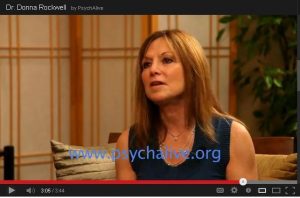Five Things You Don’t Expect When You’re Expecting: How Parenthood Impacts Your Mental Health

If it suddenly feels like anywhere you go, you’re surrounded by heavily pregnant women, it is probably not your imagination. In the United States, there are more births during the months that close out summer and ring in fall than any other time of year. The season marks an exciting and scary time in the lives of many expectant parents. Physical and mental preparations are made to accommodate the grand entrance of a human life into your family. And while this is perhaps one of the most anticipated moments in life, there are still certain things no one seems to talk about when it comes to what to expect when you’re expecting
In my 25 years as a researcher and clinical psychologist, I have become familiar with the trials and tribulations of countless parents who’ve been taken aback by the unforeseen challenges and emotions that come with making the transition into parenthood. One of the worst parts of going through the roller coaster ride of having a child is the feeling that so many parents have that they are unique in their struggles and unlike all other parents. Too often, new parents feel alone in their lows, and therefore, unworthy of their highs. By recognizing that certain struggles are, in fact, shared by most parents, we can allow ourselves to be more curious, introspective, and compassionate toward ourselves, as we face the challenges that come with parenting. Here are four common reactions that are rarely discussed, but that should be expected when entering this new phase of life:
1. Saying Goodbye to Being a Kid
Along with obvious changes, such as lack of sleep and a complete shift in day-to-day priorities, there are transitions of parenthood that run deeper than what’s observed on the surface. Becoming a parent marks the ultimate step away from one’s own childhood. Being a mother or father can challenge the part of us that still longs to be nurtured or taken care of. Many pregnant women have just spent nine long months feeling “pampered,” being treated gently, and attracting interest. The sudden shift from feeling taken care of to becoming the primary caretaker of a dependent newborn can be wonderful, but it can also stir us up emotionally.
No matter how old we are when we decide to start a family, a symbolic separation takes place in our minds that many of us aren’t even aware of. However, this separation frequently affects the way we feel and can manifest itself in sadness, anxiety, depression, or a sense of loss. It can even arouse emotions of which we are deeply ashamed, such as resentment or jealousy toward our baby. The mixed bag of emotions we experience as new parents often leaves us falling silent about anything negative we may be feeling. This prevents us from realizing that having these feelings does NOT mean we don’t love our children or value and appreciate the fact that they were born. However, if we feel guilty or refuse to talk about our negative reactions, we miss out on identifying where these feelings are coming from and on better understanding ourselves so that we can become better parents.
2. Milestones that Stir Up Emotions
Parenthood has the amazing ability to rouse feelings, thoughts, and memories from our childhood that we may have long since buried or forgotten. Our children act as constant triggers of the painful things we experienced while growing up. No matter how perfect our parents and caretakers may seem to us, every human being is flawed and carries with them their own shortcomings. The ways we were hurt as children influences our thoughts and affects our feelings as adults. Painful experiences from the past can trigger reactions in us in the present without us even making the connection. If we had a parent who worried excessively about our every move, on some level, we will hold on to that cautious feeling of panic in each step we take in of our adult lives. This is especially the case when we become parents.
For example, a man who’d just become a dad was having irrational fears about picking up his newborn son. Instead of challenging his worry, he left his wife to do most of the early caregiving. This left both he and his wife disappointed, as both had expected him to be a hands-on parent. When I asked my friend about his own dad, he could barely remember him. He too had left all the parenting to his wife and was only really in the picture to offer discipline or advice. Although the young father felt he was completely different than his own father in his desire to care for his son, as soon as his son was born, these negative thoughts flooded his mind telling him that he didn’t know what he was doing, that he would never be a good dad, and he should just stay away from the baby. By identifying where these negative thoughts, which I refer to as “critical inner voices,” came from, the man was able to challenge himself by taking actions to care for his son. He found he was not only competent in doing so, but that he also really enjoyed the tender moments between them.
3. The Fear of Becoming Your Mother or Father
While we are aware of fears like not waking up to the baby crying or forgetting to put wipes in the diaper bag, there are more psychological concerns we carry with us as new parents that don’t necessarily rise to consciousness but that influence us all the same. One of these is the fear of becoming like our own parents. We are horrified when we find ourselves saying or doing the very things we hated our parents saying and doing to us. The truth is that how we were treated as kids will continuously influence how we treat our own kids. Unresolved issues that we haven’t faced and fully felt or made sense of can influence the way we act in our relationships, especially those we form with our children.
If you had a parent who worked a lot, which left you feeling neglected and like you weren’t a priority, you may tend to focus on your career and ignore your child. If you had a parent who worried excessively about your every move, you may tend to be overprotective of your own child. However, the fear that we will hurt our child in the ways we were hurt can overwhelm us when our children are born. It can cause us to overcompensate or to question ourselves more than we should.
A friend of mine noticed that after her first baby started walking, she was constantly worried that the baby would fall. Even as she or her partner walked right next to the baby, ready to grab her at the first wobble, my friend simply couldn’t shake her fear. As a result, she often picked up the baby instead of letting her walk. This frustrated both her partner and her baby. In one moment of distress, my friend confided in me, “It’s just, my mother never paid attention to my sister when she was learning to walk. She must have fallen and hit her head like every afternoon.” This “aha” moment for my friend helped her understand her fear. It also helped her to stop reacting to her mother’s style by trying to make up for her carelessness. Such examples illustrate that, while it is important to make conscious decisions about how we want to be in relation to our children, the fears we torment ourselves with can leave us to act in ways we don’t respect.
4. Projecting Yourself Onto Your Children
When our reactions to our children are either imitating or compensating for the ways we were treated as kids, we run the risk of not living in the current moment and not reacting appropriately to the present circumstances. Our kids are not us, and their story is not our own. Pressuring them to succeed in areas we failed or assuming they will make the same mistakes we did may do our kids a disservice and bend them out of shape. Many of us have known parents who made so many rules and set such high standards that they ultimately drove their kids in the opposite direction of what either they or their parents had wanted for them, be it a solid education, a nurtured talent, or a healthy lifestyle.
Though it may seem unlikely, we can start projecting these things onto our kids when they are still very young. I once met a mother who was certain her 6-month-old baby would cry at night “just to bother her.” This perception was clearly an inaccurate view of the situation and rather a direct projection of the burdensome way in which her own mother viewed her as a child.
By getting to know ourselves and how our pasts influenced who we are, we can differentiate ourselves from negative experiences that influence us today. In doing so, we influence our kids to be themselves instead of who we’ve needed them to be for our own purposes.
5. A More Pronounced Sense of Age and Time
Having a child may be the single most concrete symbol of adulthood. The sense that we are older, that the term “my family” no longer means our parents and us, but us and our children, is a powerful alteration to experience. Becoming a “mom” or “dad” weighs us with a mature responsibility. While we may not intuitively associate an experience of new life and birth with age and mortality, this connection is often made on an unconscious level. Having a baby forces us to acknowledge the passing of time and face the fact that we are getting older.
In addition, giving a child life impairs us with the knowledge that the life we have given them is temporary, that they too will grow up and face their own mortality, just as we’ve had to. Regardless of the beliefs or principles you hold, this realization can create a heightened awareness of time, change, and the life cycle that alters your perspective for the rest of your life. Dozens of my clients have told me of how, after the birth of their first baby, they were struck by two emotions: the overwhelming joy that they had given this person life and the overwhelming guilt that this is a temporary gift.
By being attuned and sensitive, (curious, open, and accepting), toward your own emotions, you give your child the best chance of having the strongest and healthiest parent available to them at all times. The guilt that comes with not feeling inside like the perfect parent you’d like to be on the outside is a sentiment most new parents encounter at one point or another. Rather than going with this guilt, it is important to get to know yourself, to identify your reactions and to understand where they come from. In doing so, you differentiate your own past from your present and your own child from your adult self in a way that allows you to love them freely and support them in their own independent path to adulthood.
Tags: child development, couple, depression in pregnancy, mother, new parents, parenting, parenting advice, parenting skills, pregnancy








A friend of mine noticed that after her first baby started walking, she was constantly worried that the baby would fall. Even as she or her partner walked right next to the baby, ready to grab her at the first wobble, my friend simply couldn’t shake her fear. As a result, she often picked up the baby instead of letting her walk.